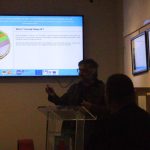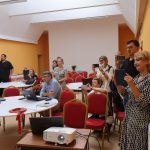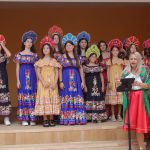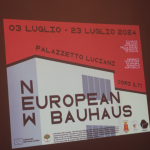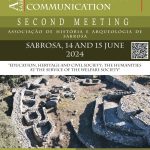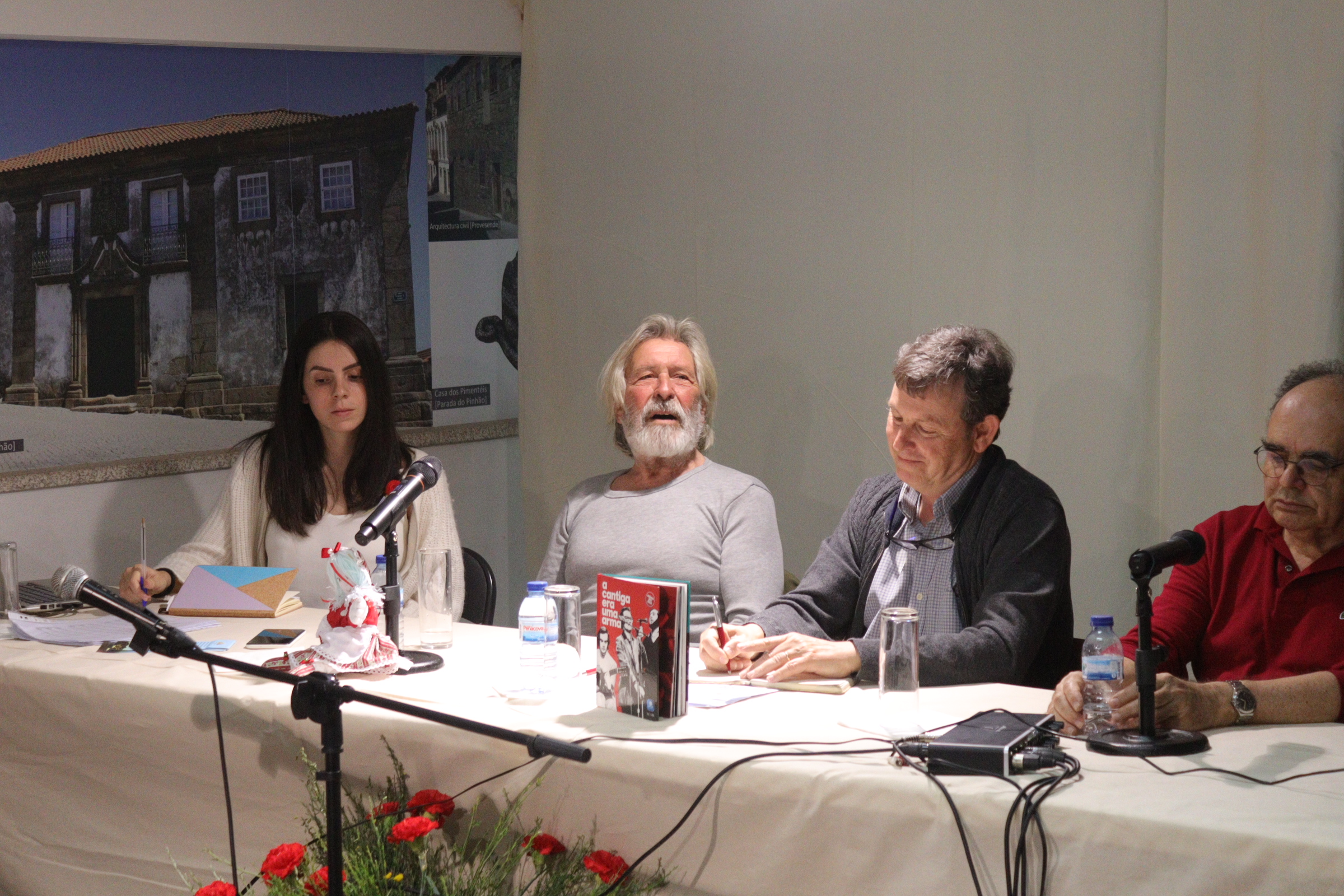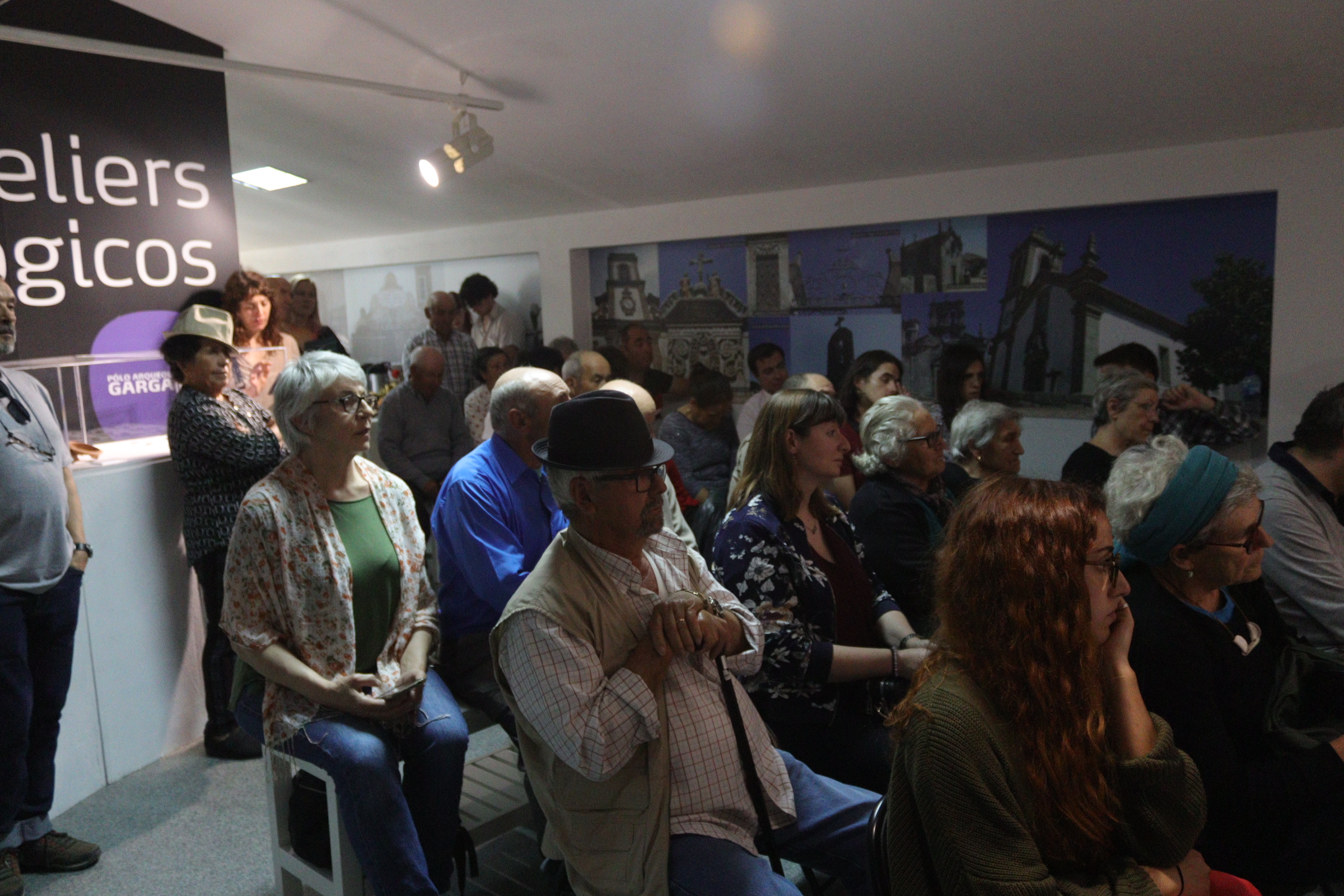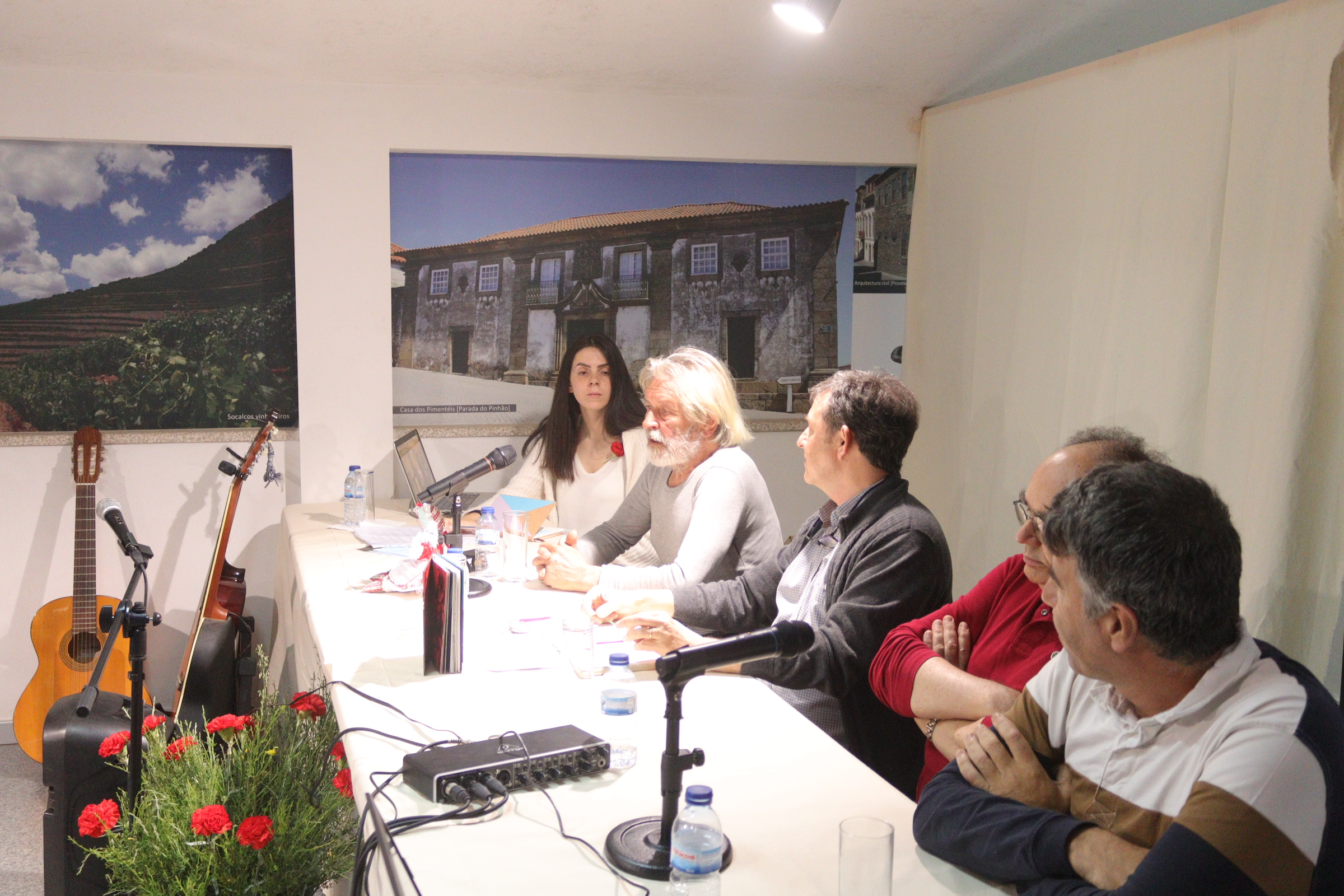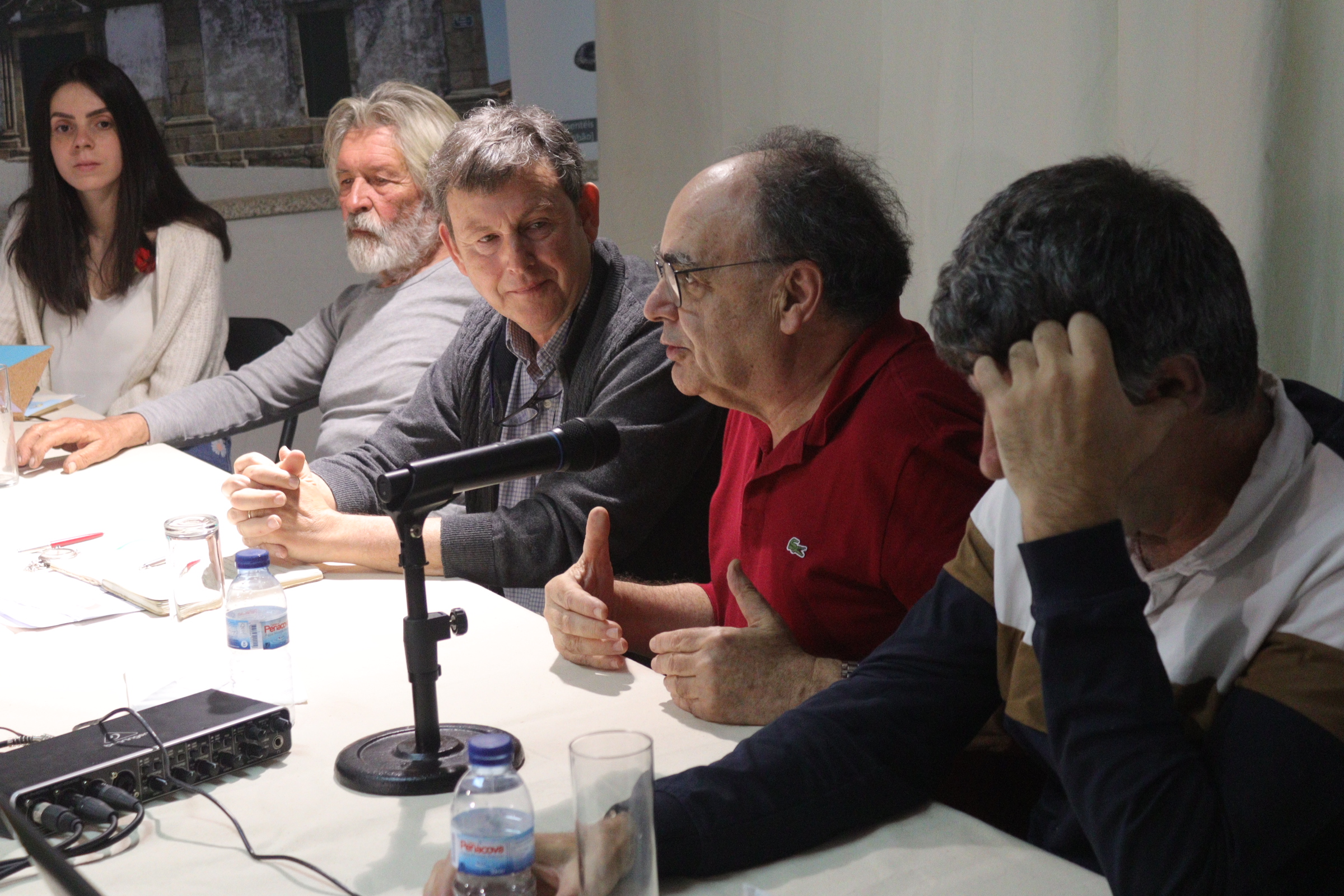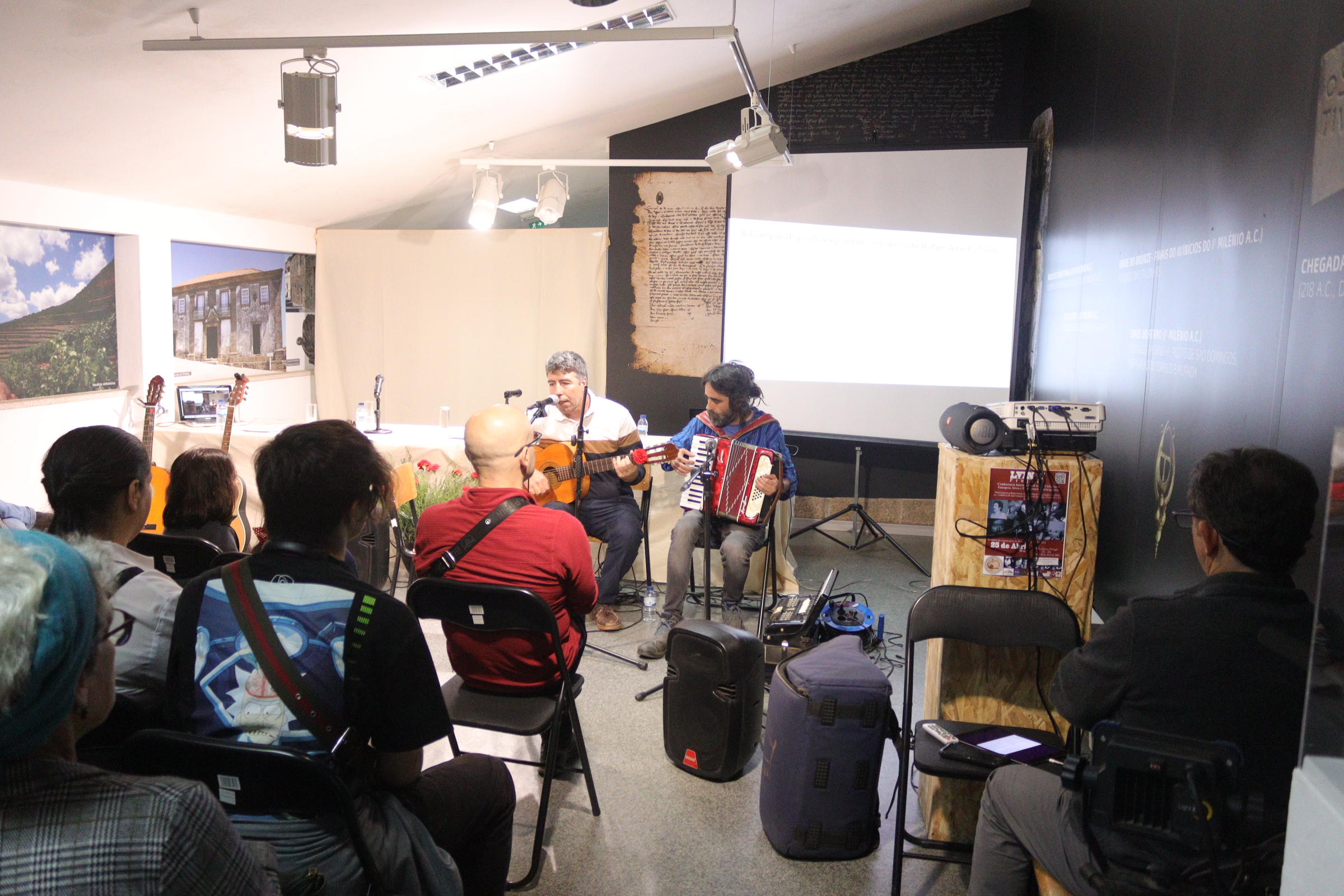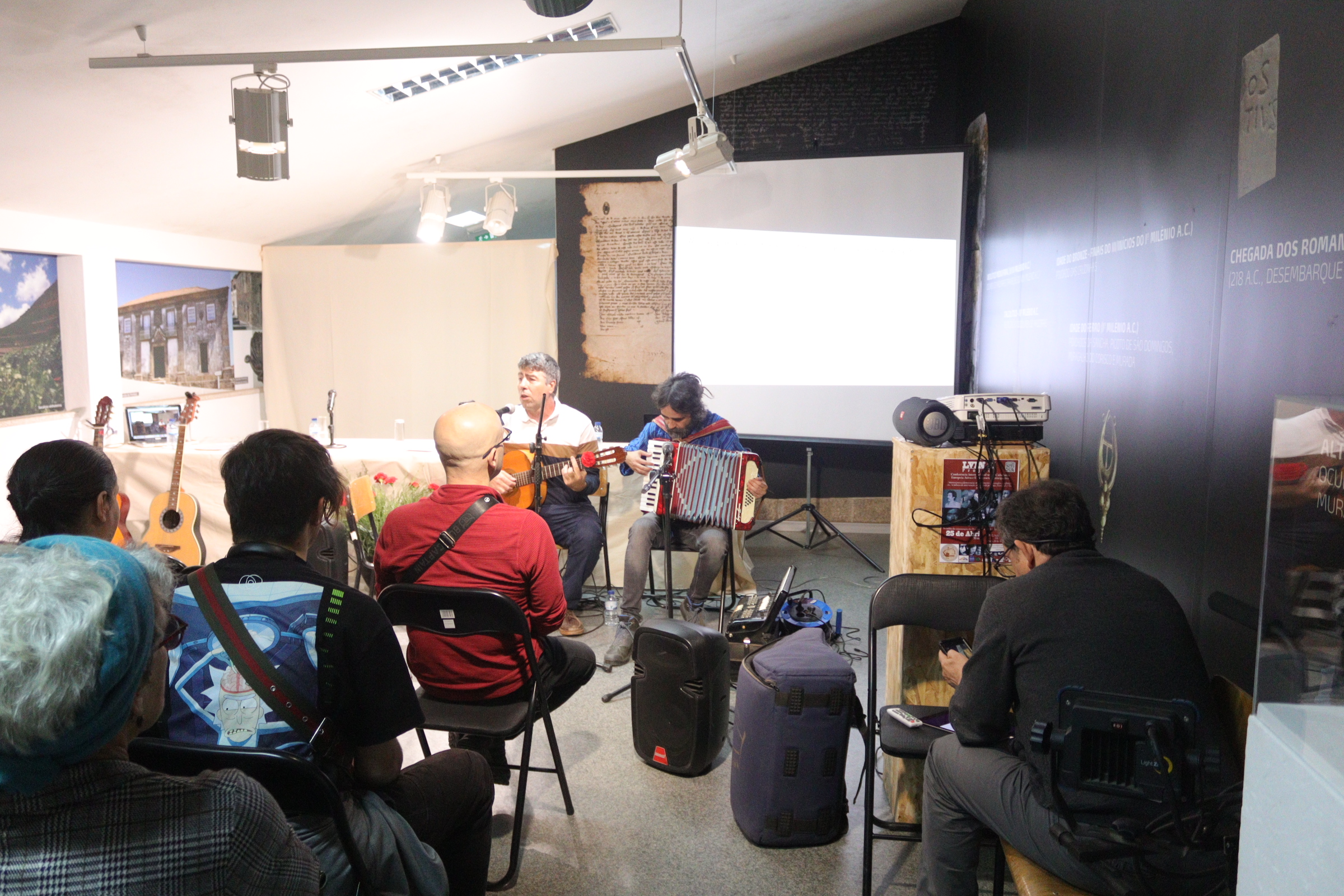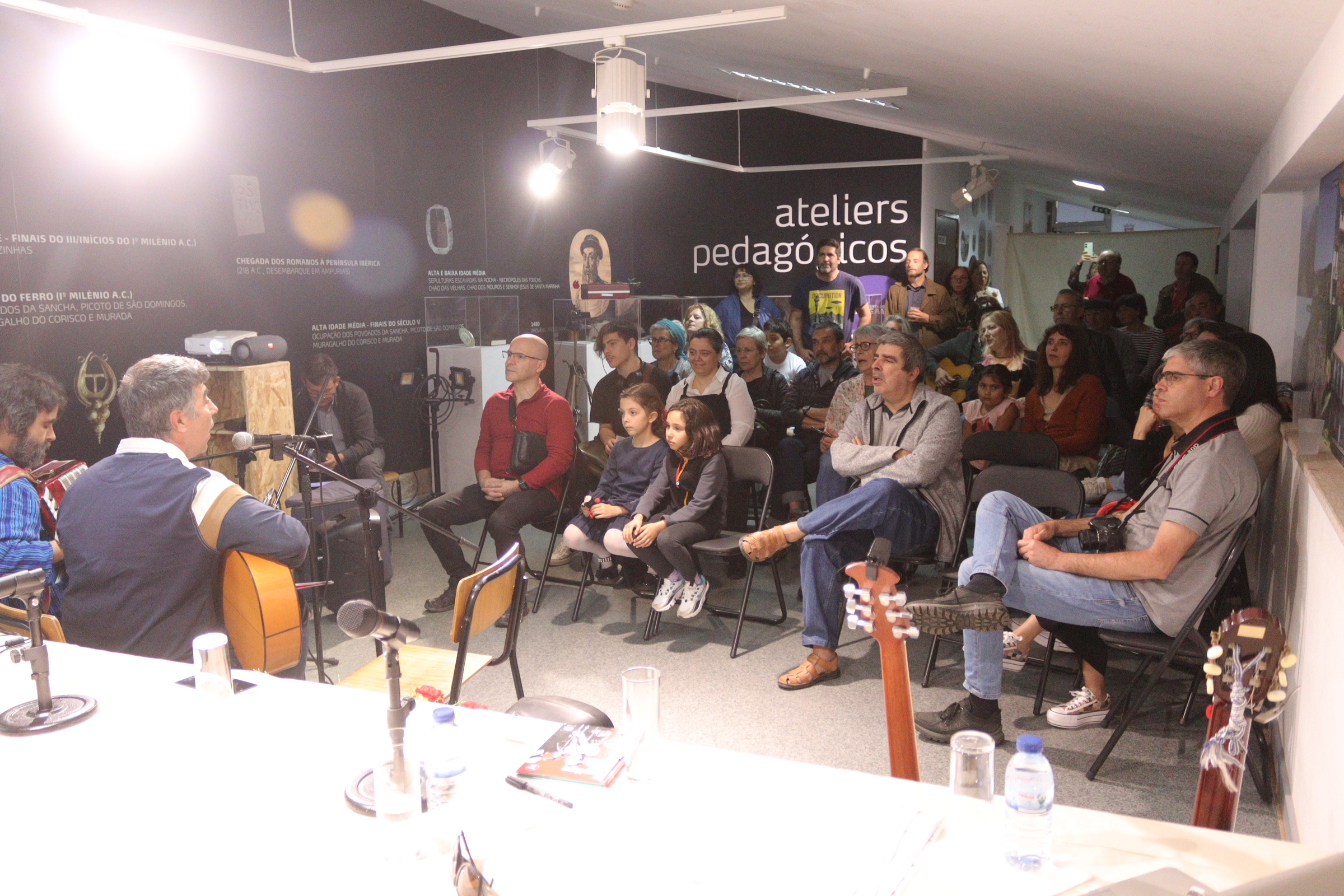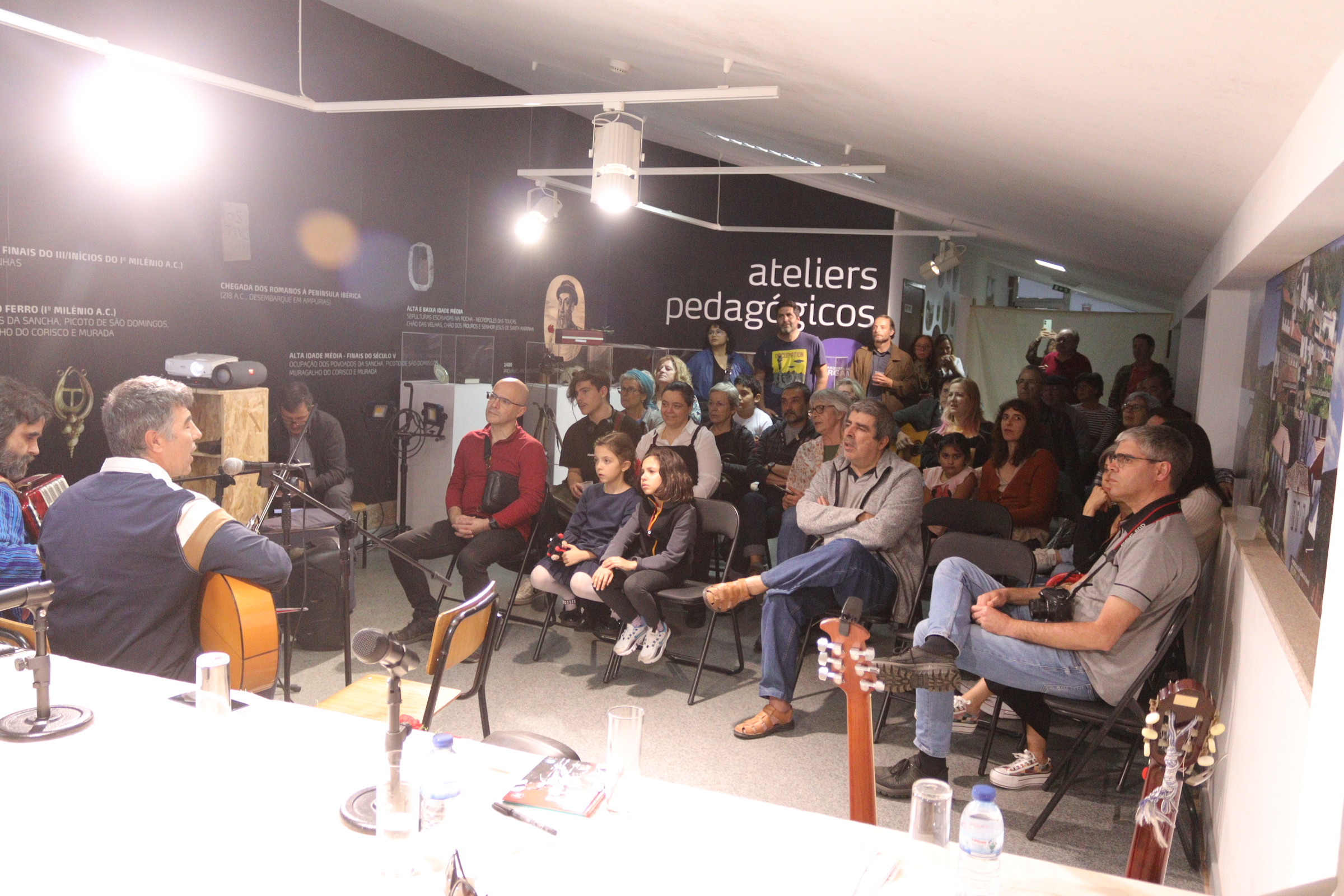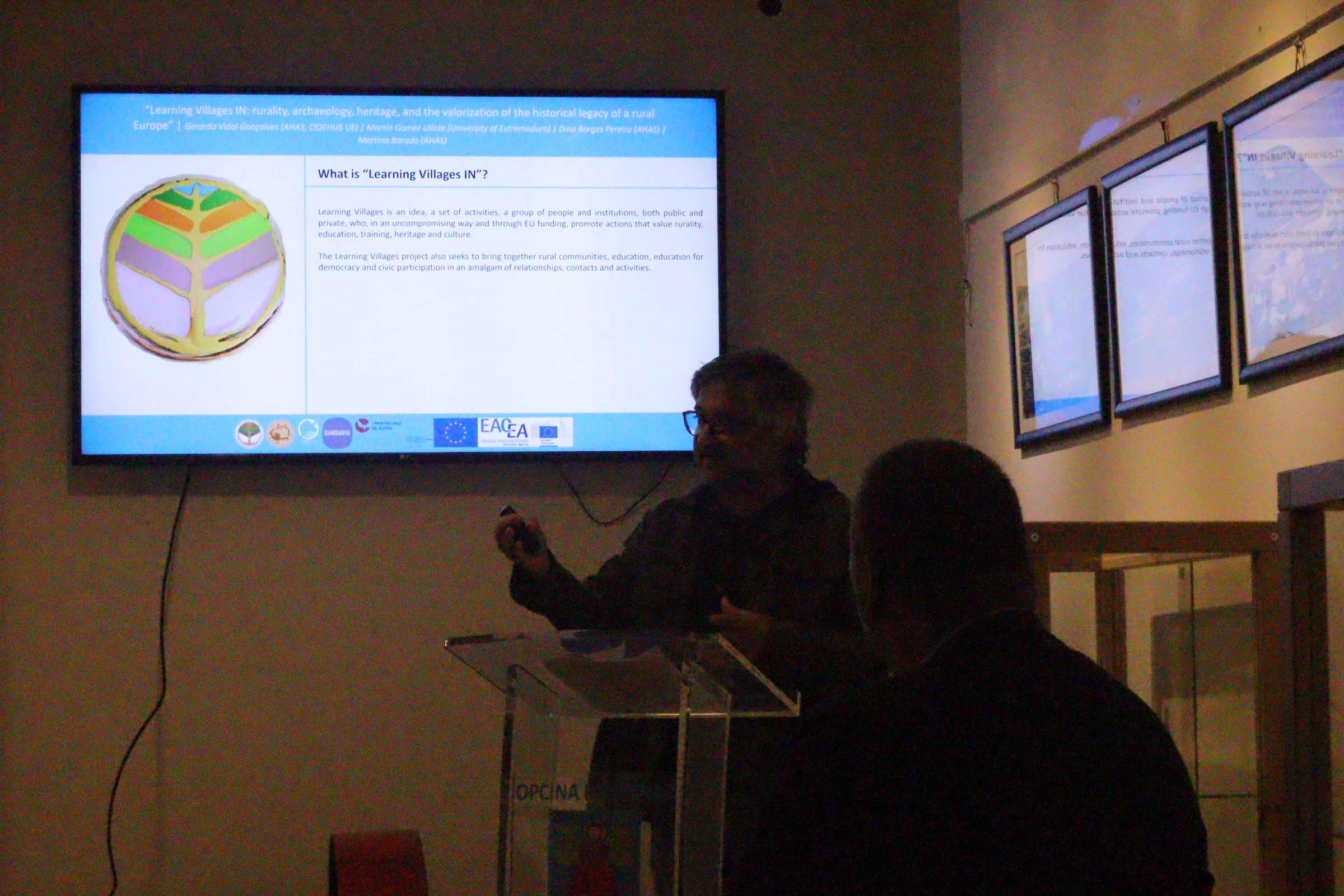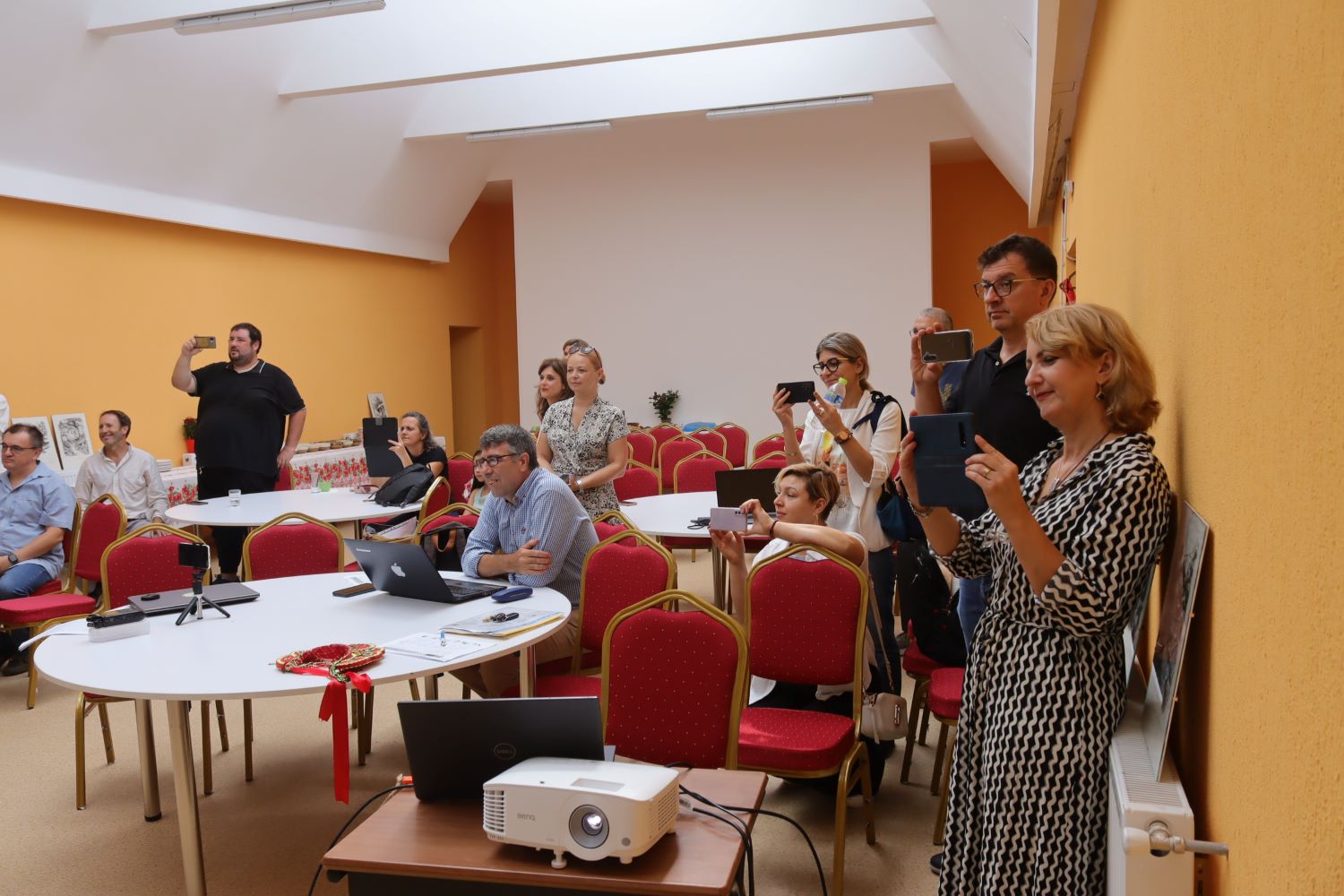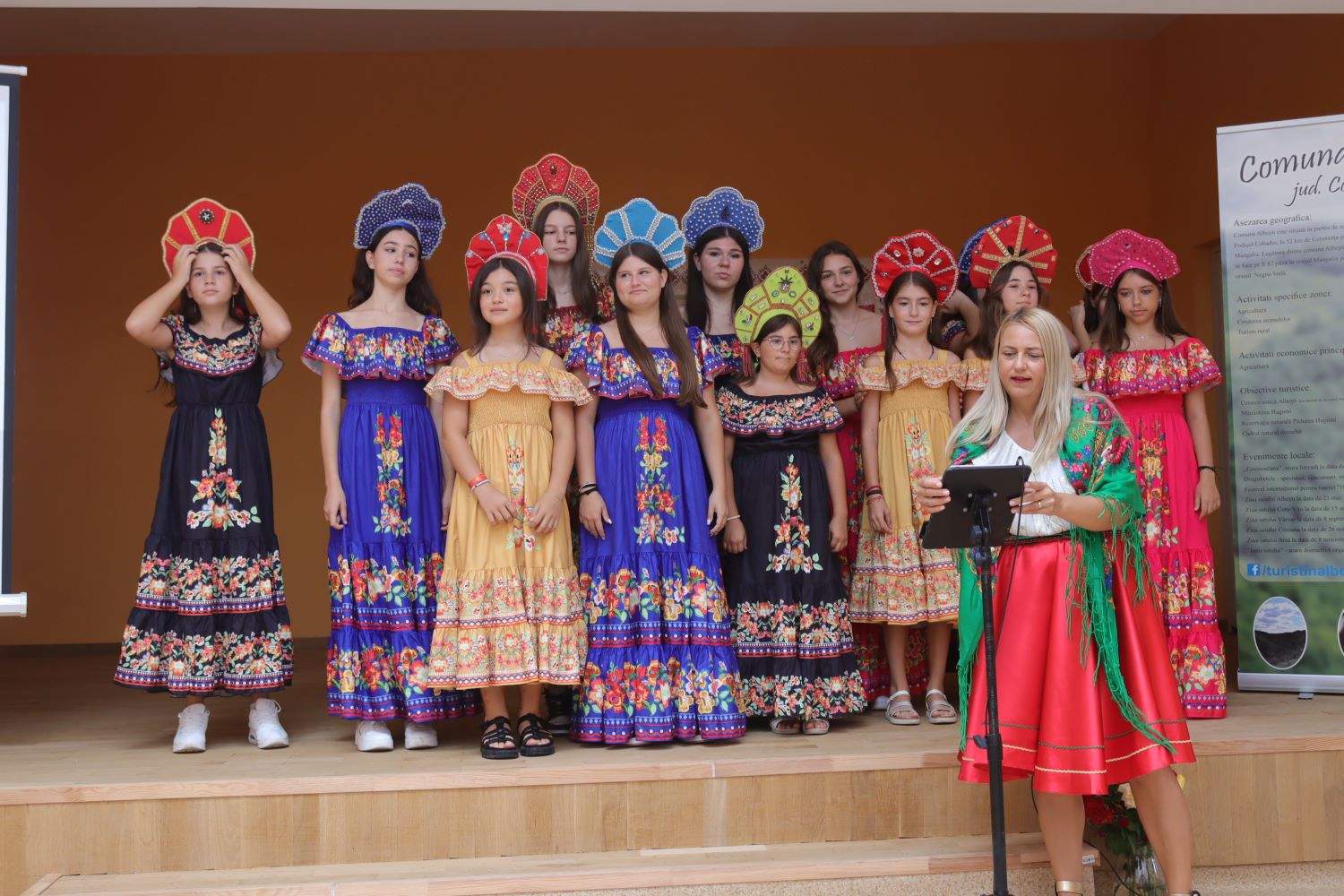On last Saturday, April 20, 2024, the “International Conference on Active European Citizenship and Participatory Democracy: music for democracy: art and protest in totalitarian states… intervention music, protest song, Portugal & Spain” took place as part of the LVIN #C project. The event saw the participation of various project partners (Verdemente, UNEX, etc). As part of the event, which was also integrated into the celebrations of the 50th anniversary of April 25, 1974, the day of freedom in Portugal, several personalities delivered speeches.
The conferences were fantastic. The speakers delved into aspects of participatory democracy and the relationship of intervention music with awakening civic and democratic consciousness in rural areas. Intervention music is a musical genre that emerged in Portugal and some other Portuguese-speaking countries during the 1960s and 1970s. It has its roots in protest songs and politically engaged music. The lyrics of these songs often address social, political, and cultural issues, highlighting injustices and inequalities and promoting social awareness and change. Key artists and groups in this movement include names such as José Afonso, Sérgio Godinho, Zeca Afonso, Adriano Correia de Oliveira, among others. Their songs frequently touched on themes such as dictatorship, the struggle for freedom, social equality, and human rights. Intervention music played a significant role in resisting the dictatorship in Portugal during the Salazar and Marcelo Caetano years and continued to be an important form of expression even after the Carnation Revolution in 1974. Over the years, intervention music has evolved and incorporated a variety of musical influences, but its commitment to social and political issues has remained central.
In totalitarian states, democracy and civic participation are often suppressed or heavily restricted by the ruling regime. Totalitarianism is characterized by absolute control of the state over all aspects of public and private life, including politics, economy, culture, and society. In this context, citizens often face serious restrictions on their individual freedoms and political rights, making civic participation and democratic practice extremely challenging. Some of the ways in which totalitarian states limit democracy and civic participation include: a) Political repression: The regime suppresses any form of political opposition, using methods such as arbitrary arrests, persecutions, torture, and executions of dissidents; b) Censorship and media control: Freedom of the press is severely restricted, with the government controlling the media and imposing censorship on the content that is disseminated. This prevents the spread of critical information about the regime; c) Restrictions on assembly and association rights: The government prohibits or severely limits the ability of citizens to gather peacefully, form independent organizations, or alternative political parties. Manipulation of elections: If elections are held, they are often manipulated to ensure the victory of the ruling party or leader, through electoral fraud, voter intimidation, or exclusion of opposition candidates; d) Propaganda and indoctrination: The regime uses intensive propaganda and indoctrination to control public opinions and shape citizens’ perception of the government and its leaders. This may include mandatory education in specific ideologies and the glorification of the regime’s leader. Due to these restrictions, civic participation in totalitarian states is often limited to forms of underground resistance, such as creating networks of dissidents, using secret communications, and organizing underground protests. However, even these forms of resistance are subject to significant risks and may result in severe reprisals from the government.
The event featured the participation of Tinho Flores, an intervention musician in the democratic process in Portugal in 1974 during the April 25th revolution, journalist Joaquim Vieira, archaeologist Luís Pereira, Professor Martin Gomez Ullate from the University of Extremadura, and sociologist Rita Madeira from ATPD (Transmontana Association for Development).
Discussion and Summaries of Works (PDF)

